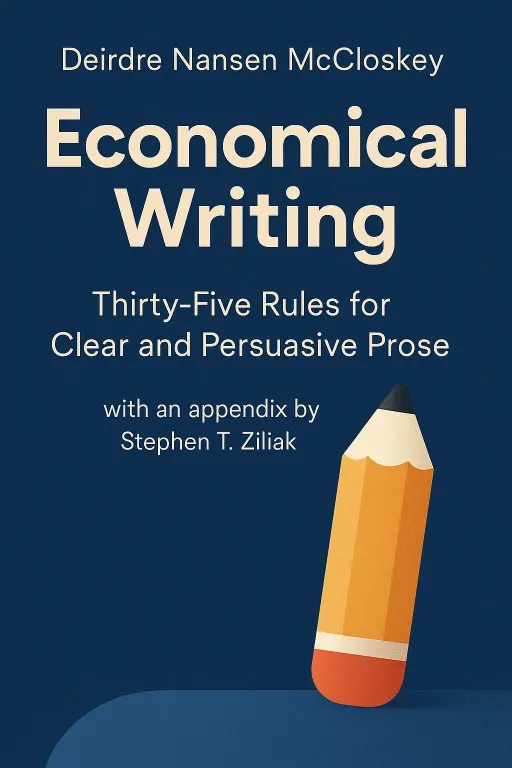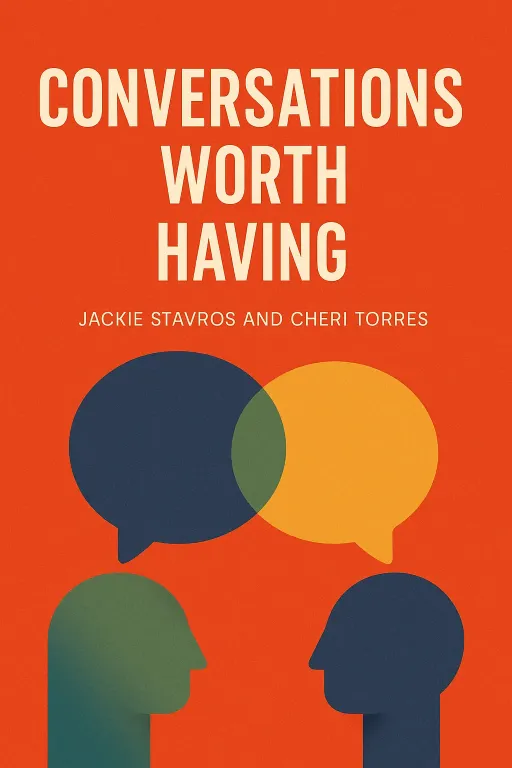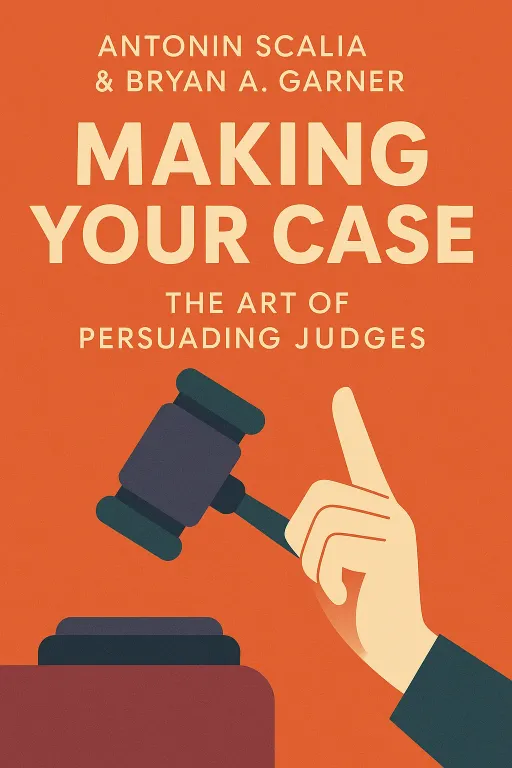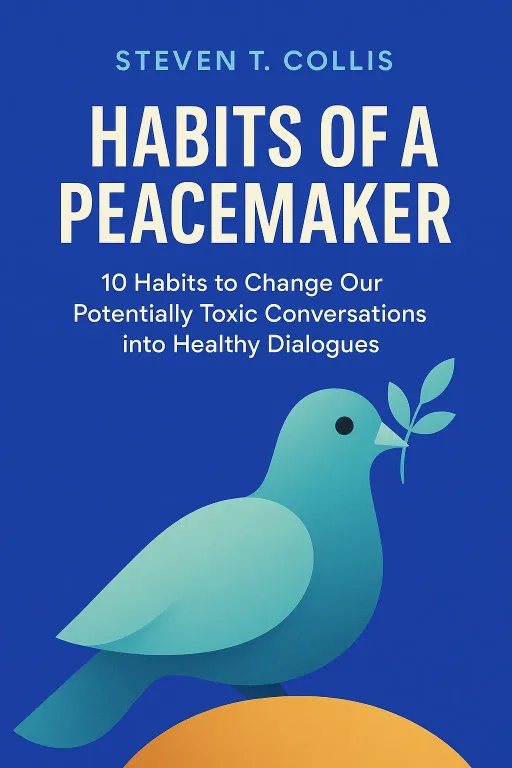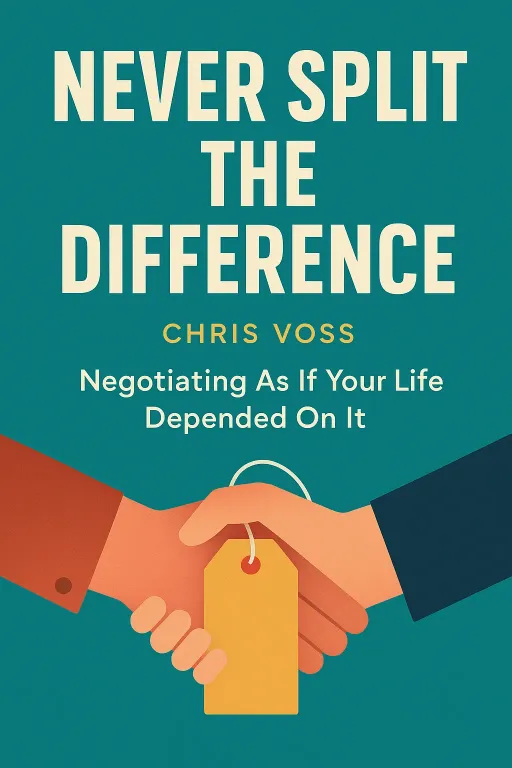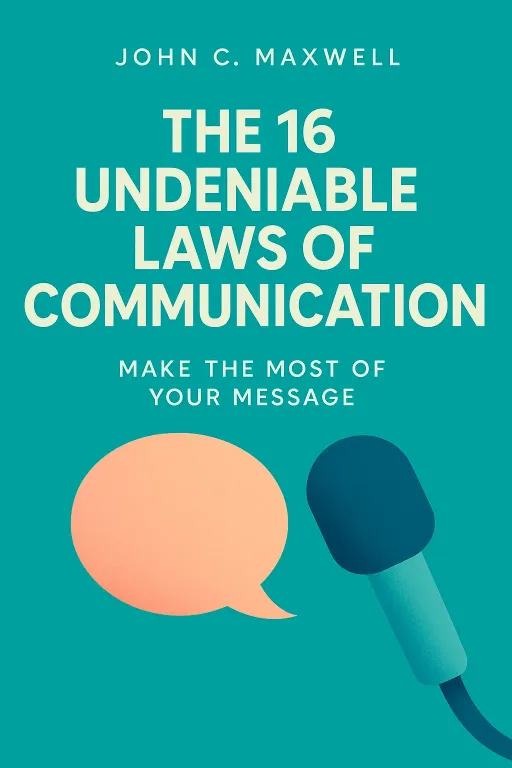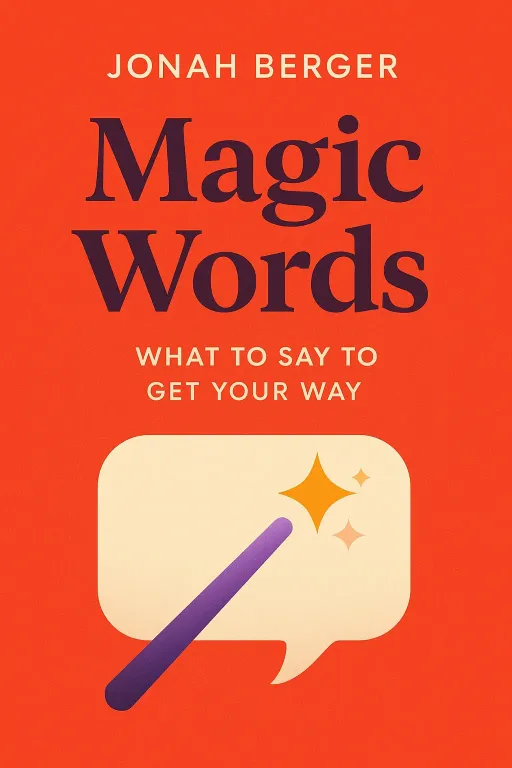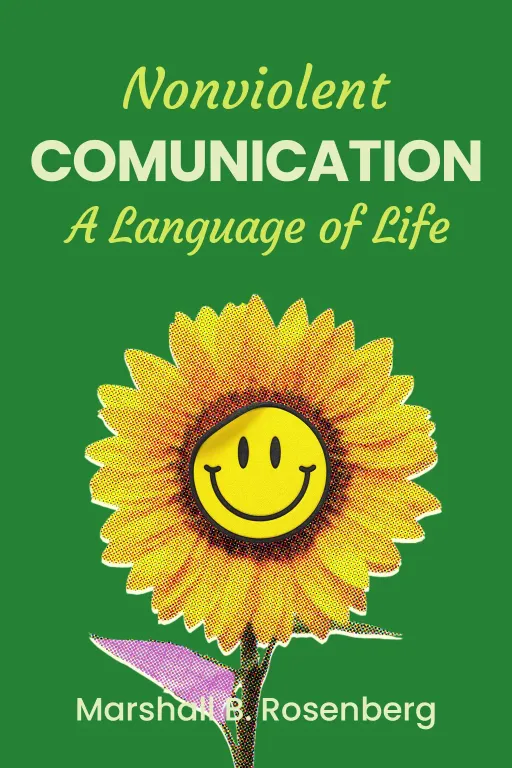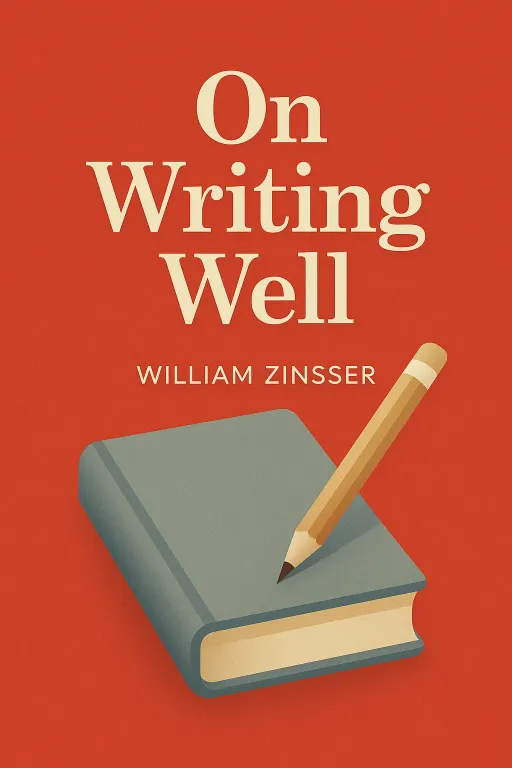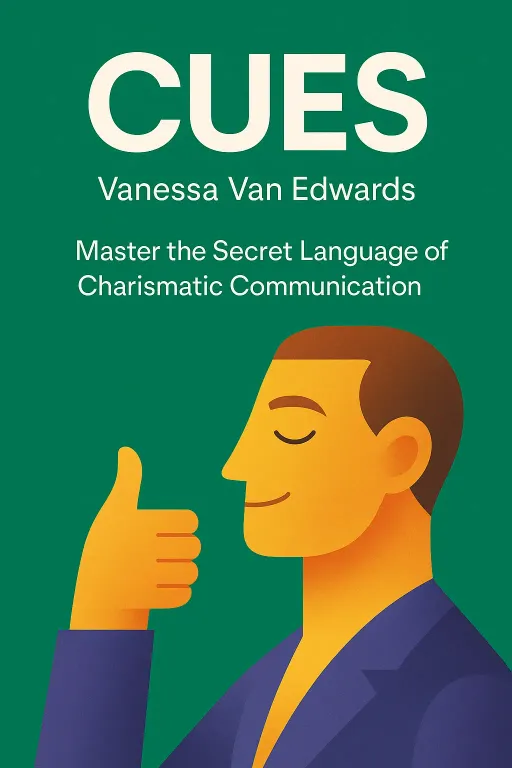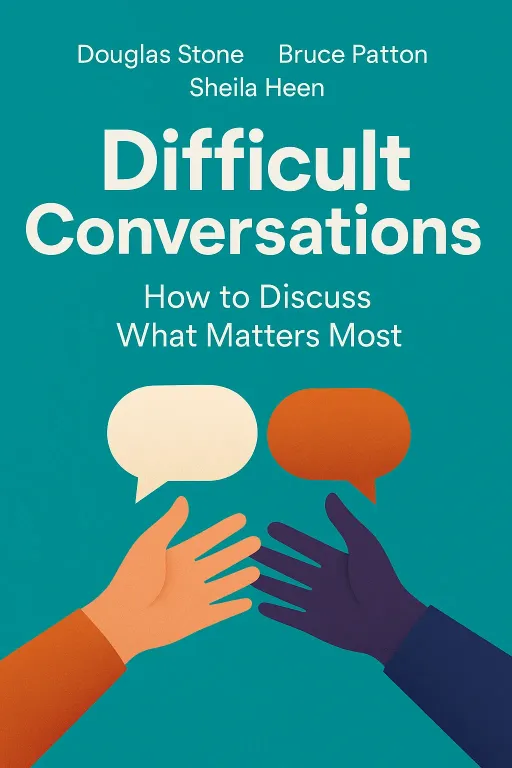
What You're Really Arguing About
15 minHow to Discuss What Matters Most
Golden Hook & Introduction
SECTION
Michelle: The most damaging thing you can do in an argument isn't yelling or getting angry. It's trying to be tactful. Mark: Wait, what? Hold on. Being polite is the problem? I thought that was the entire solution! My whole conflict-avoidant life is built on a foundation of tact. Michelle: I know, it sounds completely backward. But that polite, sugar-coated hand grenade you're about to throw? It's still a hand grenade. Today, we're learning how to disarm it completely. Mark: Okay, my interest is officially piqued. A hand grenade coated in sugar. What are we talking about? Michelle: We are diving into a modern classic, Difficult Conversations: How to Discuss What Matters Most, by Douglas Stone, Bruce Patton, and Sheila Heen. And what's fascinating is where this book came from. These are the minds from the Harvard Negotiation Project, the same group that gave the world the legendary business book Getting to Yes. Mark: Right, the bible of negotiation. I feel like every business major has a copy. Michelle: Exactly. But the authors noticed something. They saw that all the brilliant, logical strategies from Getting to Yes would just fall apart the moment a conversation got personal. The techniques failed when emotions and, crucially, our sense of identity were on the line—in our families, with our partners, in our most meaningful conflicts. This book was their answer to that gap. It's been widely acclaimed for basically applying emotional intelligence to life's toughest moments. Mark: So it’s the sequel for the rest of us who aren't negotiating corporate mergers, but are just trying to survive Thanksgiving dinner. Michelle: Precisely. And it all starts by understanding that we're never, ever having the conversation we think we're having.
The Three Hidden Conversations: Deconstructing the Mess
SECTION
Mark: What do you mean by that? If I'm arguing with my partner about who was supposed to take out the trash, it feels pretty straightforward. The trash is still there. I am right. Case closed. Michelle: (Laughs) That's what we all think! But according to the authors, while you're debating the "facts" of the trash situation, you're actually caught in a three-ring circus. Every difficult conversation is really three hidden conversations happening at the same time. Mark: A three-ring circus. That sounds... exhausting and accurate. What are the three rings? Michelle: First, there's the "What Happened?" Conversation. This is the surface level stuff. Who said what, who did what, who's right, who's to blame. This is where the argument about the trash lives. Mark: Okay, got it. The logistics. Michelle: Second, there's the Feelings Conversation. This is all about the emotions. Are my feelings valid? Are yours? Should I share them or bottle them up? In the trash example, it's not about the bag, it's about feeling ignored, unappreciated, or taken for granted. Mark: Ah, yes. The subtext. I am familiar with the subtext. Michelle: And the third, which is the one that trips us up the most, is the Identity Conversation. This is the internal conversation we have with ourselves about what this situation means for us. It's all about our self-image. Mark: Okay, you're losing me a little. How does forgetting to take out the trash trigger an identity crisis? That seems a bit dramatic. Michelle: Does it? Think about it. The internal monologue isn't "the trash is full." It's "Am I a good partner? Am I competent? Am I seen as a slacker?" Or on the other side, "Am I a nag? Am I being unreasonable?" Our self-worth gets tangled up in the most mundane disagreements. The book has this perfect, painful story about a designer named Jack and his friend, Michael. Mark: Lay it on me. Michelle: So Michael is a client and a friend. He calls Jack in a panic late one afternoon. His usual designer is gone, and he needs a financial brochure designed and printed by the next day. It's a huge ask. But Jack, being a good friend, drops everything. He cancels his own plans, works late into the night, pulls an all-nighter to get it done. He feels like a hero. Mark: I know that feeling. The caffeine-fueled savior. Michelle: Exactly. The next morning, Michael gives the mock-up a quick look and says, "Looks great, go to print!" Jack gets it delivered by noon. He's exhausted but proud. Then, a few hours later, he gets a voicemail. Mark: Oh no. I can feel the dread. Michelle: The voicemail is from Michael, and it's brutal. He says, "Jack, you really screwed this one up. The earnings chart isn't clear, and it's slightly off. It's a disaster. I assume you'll fix it right away." Mark: Ouch. After an all-nighter. That's a gut punch. Michelle: A total gut punch. Now, let's break this down with the three conversations. The "What Happened?" conversation is about the chart. Is it a disaster? Is it just slightly off? Who's to blame? They're arguing about the "facts." Mark: Right. Michael's fact is "the chart is wrong." Jack's fact is "I busted my butt for you and you approved it." Michelle: Precisely. Then there's the Feelings conversation, which is completely unspoken. Jack is feeling hurt, furious, and totally unappreciated. Michael is probably feeling stressed, let down, and maybe guilty for putting Jack in that position. But are they talking about those feelings? Of course not. Mark: No, they're talking about the pixels on a chart. Michelle: And here's the kicker: the Identity Conversation. For Jack, the internal question is, "Am I incompetent? After all that work, did I fail? Am I a bad friend for letting him down?" And for Michael, it might be, "Am I a jerk? Am I a bad manager who just destroyed a friendship over a tiny mistake?" The stakes feel monumental because their very sense of self is on the line. And that's why the conversation goes so badly. They're stuck in the "What Happened?" ring of the circus, while the real emotional and identity fires are raging in the other two rings. Mark: Wow. Okay, when you put it like that, it's so clear. We think we're fighting about the issue, but we're really fighting for our sense of who we are. Michelle: That's the core insight. And when our identity feels threatened, what's the very first thing we do? Mark: Find someone else to blame. Immediately. Michelle: It's our favorite defense mechanism. And the book argues it's a total trap.
The Blame Game vs. The Contribution System
SECTION
Mark: Right, because it feels so good! It's simple, it's clean, and it makes us the hero of our own story. 'It's not my fault, it's their fault.' But you're saying that's the wrong move? Michelle: It's the worst move, because it completely shuts down learning. The authors draw a sharp line between Blame and Contribution. Blame is about judgment. It's backward-looking. It asks, "Whose fault is it?" and implies punishment. Mark: It's a courtroom. You're the prosecutor, they're the defendant. Michelle: Perfect analogy. Contribution, on the other hand, is about understanding. It's forward-looking. It asks, "How did we both contribute to this situation, and what can we do to fix the system going forward?" It's about being partners in solving a puzzle, not adversaries in a trial. Mark: That sounds nice and enlightened, but what if someone is genuinely, 100% at fault? I mean, if someone crashes the company car because they were texting, are you telling me I have to sit down and explore my 'contribution' to their reckless driving? Michelle: (Laughs) That's the exact question everyone asks! And it's a great one. The book is very clear: contribution is not about excusing bad behavior or ignoring legal or moral responsibility. The person who was texting is still responsible. Contribution is about understanding the system that allowed the problem to happen. Mark: Okay, so how does that apply in a less extreme case? Michelle: There's a great story in the book. Imagine you're an ad executive. You've flown to another city for a massive, make-or-break pitch to a new client, ExtremeSport. You get to the conference room, open your briefcase, and realize your assistant packed the wrong storyboards. The presentation is a disaster. Mark: Oh, that's a nightmare. My first instinct is to call the assistant and unleash a torrent of blame. Michelle: Of course! The "Blame Conversation" would sound like, "How could you let this happen?! This was our biggest pitch! I trusted you!" The assistant gets defensive, promises it won't happen again, and you both hang up feeling terrible. Nothing is learned. Mark: And the relationship is damaged. Michelle: Right. Now, contrast that with a "Contribution Conversation." You call the assistant and say, "This was a disaster, and I want to retrace our steps to make sure this never happens again. I suspect we both played a part." Mark: That's a hard sentence to say when you're furious. Michelle: It is. But look what it opens up. You might say, "My contribution was that I was incredibly stressed and abrupt yesterday, and I probably didn't give you a chance to ask clarifying questions." And the assistant might say, "Well, my contribution was that I was intimidated by how stressed you were, so I didn't double-check which 'ExtremeSport' folder to grab. I just guessed." Mark: Ah, so the problem isn't just 'the assistant messed up.' The problem is a system of poor communication under pressure. Michelle: Exactly! Now you can actually solve the real problem. You can agree that next time, no matter how stressed you are, the assistant has permission to interrupt and confirm. You've fixed the system instead of just blaming a person. Mark: I get it for a team dynamic, but I'm still stuck on the personal side. If my partner overspends on the credit card, isn't it... their fault? How do I find my 'contribution' to that without sounding like I'm making excuses for them? Michelle: It's a great, tough question. The book would suggest looking for what it calls "hard-to-spot contributions." One is "Avoiding Until Now." Was your contribution that you never sat down to have a clear, difficult conversation about finances in the first place? Another is "Intersections." Maybe you have fundamentally different philosophies about money—one a saver, one a spender. The problem isn't that one of you is 'wrong,' it's that your different approaches are colliding. Mark: So my contribution is not having the difficult conversation sooner. Michelle: It could be. The point isn't to take the blame, but to acknowledge your role in the bigger picture. It's about saying, "I can see how my actions, or inactions, were part of the chain of events that led here." That humility is what allows the other person to let down their guard and do the same. Mark: It's a radical shift from wanting to be right. It feels like you have to completely let go of your ego. Michelle: You do. And that's where the book's most powerful, and maybe most difficult, tool comes in. It's a simple idea with a profound impact.
From 'Truth' to 'And Stance'
SECTION
Mark: Okay, I'm ready. What's the magic bullet for letting go of my ego? Michelle: It's called the "And Stance." Mark: The 'And Stance'? Sounds like a yoga pose for arguments. Downward-facing dog, warrior two, and stance... Michelle: (Laughs) You're not far off! It's a mental posture. The "And Stance" is the discipline of replacing the word "but" with the word "and." We live in a world of "but." "I understand how you feel, but you're wrong." "That's a valid point, but here's why my point is better." "But" dismisses what came before it. It sets up a battle. Mark: "I love you, but..." The four scariest words in a relationship. Michelle: Exactly. "And" does the opposite. It acknowledges the other person's story as true for them, without requiring you to give up your own. It says two seemingly contradictory things can be true at once. Mark: Okay, that feels a little abstract. How does it work in practice? Michelle: Let's go to the story of Rory and her Great Aunt Bertha. Rory is worried because Aunt Bertha has a bad back, and she's sleeping on an old, sagging mattress. Rory, being a caring niece, wants to buy her a new, firm mattress. Mark: Seems reasonable. A good deed. Michelle: But Aunt Bertha refuses. Vehemently. They get into huge arguments. Rory's story is, "My aunt is being stubborn and irrational, and she's hurting herself." She's trying to prove she's right. Mark: And what's Aunt Bertha's story? Michelle: Aunt Bertha's story is, "My niece is being pushy and disrespectful. She's trying to control the last little bit of my life. This mattress is where my husband died. It holds memories." Mark: Whoa. Okay, that's a very different story. Michelle: And arguing about who's "right" is a complete dead end. Rory can't win by proving her aunt isn't attached to the mattress. Aunt Bertha can't win by proving Rory doesn't care. They're locked in a battle of "but." "I know you're attached, but it's bad for your back." "I know you're concerned, but you're not listening to me." Mark: So how does the "And Stance" fix this? Michelle: The "And Stance" allows Rory to say, "It sounds like you feel I'm being pushy and not respecting your feelings about this mattress, and I am feeling scared and worried about your health." Mark: Huh. So it's not about deciding if Aunt Bertha is stubborn or if Rory is pushy. It's about accepting that Aunt Bertha is attached to her mattress and Rory is genuinely concerned. Both are true. Michelle: Both are true. It validates both realities simultaneously. It doesn't mean Rory has to give up on helping her aunt, but it changes the entire conversation. It moves from a fight about who's right to a collaborative exploration: "Given that you feel this way, and I feel this way, what could we possibly do?" Maybe the solution is a new mattress in the guest room. Maybe it's a high-quality mattress topper. Maybe it's just Rory backing off and respecting her aunt's autonomy. The solution isn't the point. The shift in the conversation is. Mark: Wow. That's a simple word with a lot of power. It completely changes the energy of the conversation from a fight to... a puzzle you solve together. It's like you're both on the same side of the table, looking at the problem, instead of on opposite sides, looking at each other. Michelle: That's the perfect way to put it. You're moving from certainty to curiosity. And that's the thread connecting everything we've talked about.
Synthesis & Takeaways
SECTION
Michelle: The Three Conversations, the Contribution System, the "And Stance"—they're all tools designed to do one thing: shift you from a battle stance to a learning stance. To get curious instead of furious. Mark: It really feels like the ultimate goal isn't to 'win' the conversation, or even to solve the problem in that moment. It's to preserve, and maybe even deepen, the relationship. The book is highly praised, but I have to ask the question I'm sure many listeners are thinking. Some reviews suggest it's almost too idealistic. Does this stuff really work when the other person is being a complete, utter jerk? When they're not interested in a 'learning conversation'? Michelle: That's the most important practical question. And the authors are very realistic about it. They say you cannot change or control the other person. Full stop. Their reaction is not within your control. Mark: So what's the point then? Michelle: The point is that you can lead. You can invite them into a more productive space. When they throw blame, you can reframe it into contribution. When they state their feelings as absolute truth, you can listen and use the "And Stance" to make room for your own. You can name the dynamic by saying, "I feel like we're getting stuck in a loop here. Can we try to back up?" Mark: So you're basically being the grown-up in the room. Michelle: You're being the leader of the conversation. It won't always work. Some people will refuse the invitation. But it gives you the best possible chance of turning things around. And even if it fails, you walk away knowing you handled a difficult situation with grace and integrity. You can feel good about your own actions, regardless of their reaction. Mark: That's a powerful takeaway in itself. You're not responsible for the outcome, you're responsible for your own conduct. So, I guess the real question for our listeners is: what difficult conversation have you been avoiding? Michelle: And what would happen if you approached it not with the goal of delivering a message or winning a point, but with the simple, powerful goal of learning? Learning their story, and in the process, sharing your own. Mark: A powerful thought to end on. Michelle: This is Aibrary, signing off.
